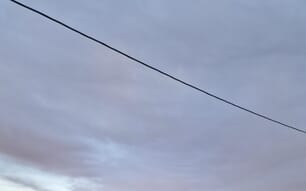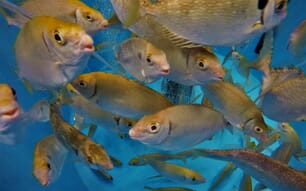Miniscule Total Allowable Catches (TACs), effort control, more selective gear, the eradication of the Northern Irish directed fishery for cod, a seasonal spawning closed area all measures that have been applied over the last decade without noticeable return.
This lack of response from the stock has parallels with the west of Scotland cod stock but contrasts markedly with the North Sea stocks, where a clear increase in the biomass shows up in the stock assessments.
Unlike the North Sea there is no problem of discarding of mature cod.
The ICES 2011 stock assessment paints a bleak picture but is full of uncertainties. It records that the targeted whitefish fleet that developed in the 1990s using semi-pelagic trawls has continued to decline to a handful of vessels. The assessment model suggests that total removals continues to vary around two to three times the reported landings, despite more accurate catch reporting and lack of evidence for significant high grading of cod.
So what is happening? Why no recovery? The assessment points to a few possibilities:
- There is evidence that the reduction in recruitment observed in the Irish Sea since the 1990s may be due to a combination of a small spawning stock biomass and poor environmental conditions, coinciding with a shift towards above average temperatures
- Recent tagging experiments have shown migrations of cod out of the Irish Sea into the North Channel, and also migrations south through the deeper Channel into the Celtic Sea
Benchmarked in 2012
There may be some hope that we will get a better grip on whats happening with Irish Sea cod because this assessment is one of those chosen by ICES for benchmark in 2012. Benchmarking is when a particular assessment is subject to a thorough review as to whether the data, methods, models used in the assessment are appropriate.
The North West Waters Regional Advisory Council has recently appointed a data coordinator for the Irish Sea who will try to ensure that the quality of the information used in the assessment is the best possible. The outcome of the benchmark process cant be foreseen but hopefully it may point a way forward and the NFFO will be involved in the process through the NWWRAC to ensure that all the key questions are asked.
Cod Management Plan
Whilst the assessment for cod in the Irish Sea is beset with complexities, no such uncertainties apply to the EU Cod Management Plan. It has achieved nothing in the Irish Sea; will achieve nothing, and has from the beginning been an exercise in futility.
Attaching the Irish Sea to the Cod Plan as an afterthought to the larger North Sea fishery, without taking into account the specifics of the conditions in the Irish Sea was never going to be a recipe for success. The formula of preordained reductions in TAC and effort (days-at sea) has been criticised by ICES/STECF in its recent review as a wholly inadequate approach.
A New Approach?
The benchmarking of the Irish Sea cod assessment and at the same time, the review of the EU Cod Management Plan, open up the possibility of a better founded approach to cod recovery in the future. It seems essential that putting the assessment on a more solid footing and a recovery plan that is well adapted to the specifics of the Irish Sea fisheries, should go hand in hand.
The industry is reporting signs of cod recovery on the grounds that have yet to show up fully in the assessment, although it is acknowledged that the 2009 year class is encouraging. If there is to be a full cod recovery in the Irish Sea, these are the kind signs we would expect to see first. The task now will be to design and implement effective cod avoidance approaches that have the support of the industry. And the first step will be to shake of the shackles of the current Plan.




